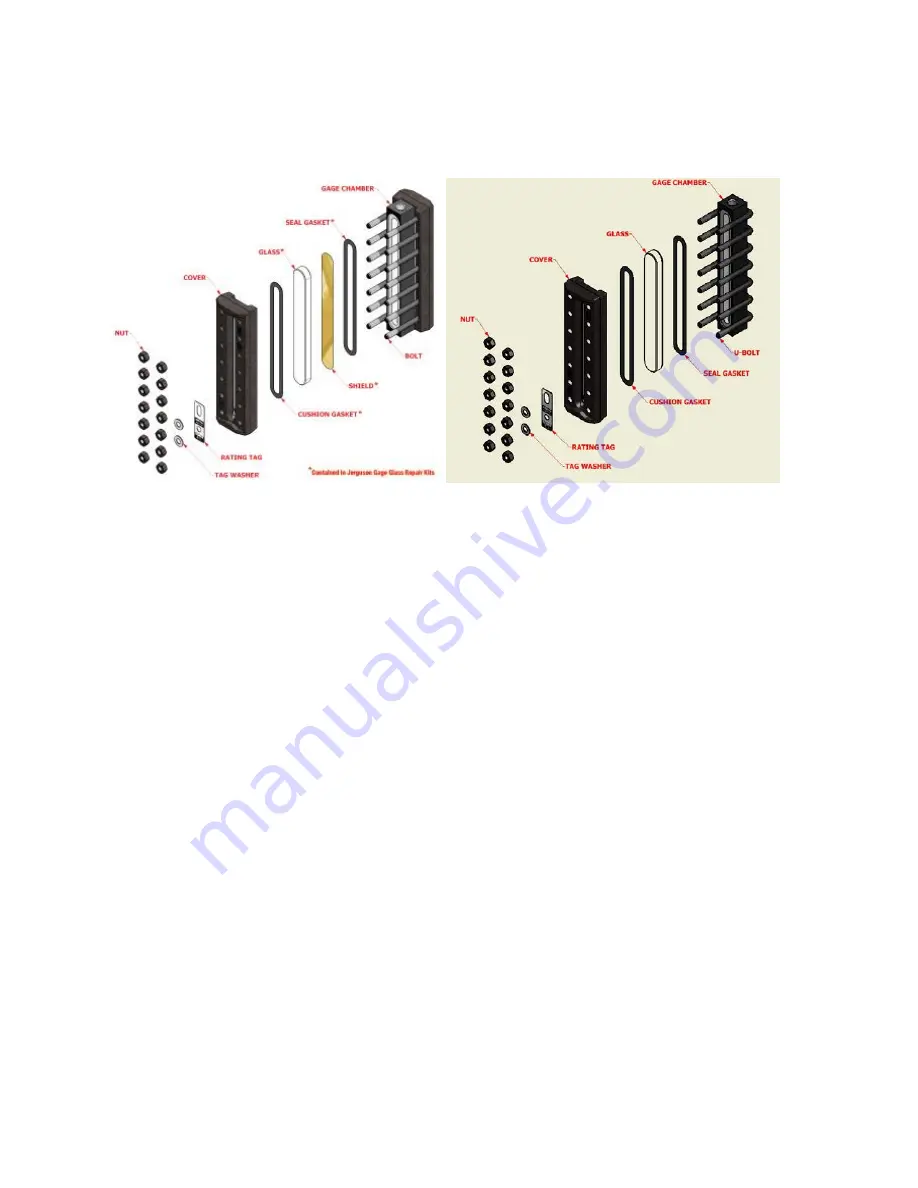
12 of 20
TRANSPARENT
REFLEX
Jerguson gages use molded borosilicate glass, tempered to increase bending
resistance. The glass has a low coefficient of expansion, is more resistant to thermal shock
than other glass and is much stronger in compression than in tension. However, as with any
glass, care should still be taken to avoid imposing any bending or local stresses or direct
glass to metal contact.
The following points should be observed to ensure long gage life:
Check with the maintenance supervisor and engineer for the proper glass to be used in
the gage. Check the data sheet for process specifications if unsure of the process
temperature and pressure. For applications over 600°F (315°C), aluminosilicate glass
must be used.
The glass, gaskets and cushions should always be replaced during maintenance, even
if they appear to be in perfect condition. Gaskets and cushions relax and can harden
over time while defects in glass (i.e., chips or scratches) become points of high stress
concentration. Even with no visible defects, a used glass has surface stresses induced
from the original assembly and pressurization of the gage. If reassembled, the gaskets
and mating surfaces will apply new stresses, which are likely to break the glass either
during assembly or when the gage is pressurized. Therefore, new glass is always
required.
The glass should not be in contact with any metal surfaces. In service, temperature
differences at points of contact will set up high stress loads and may break the glass.






































